Greeting
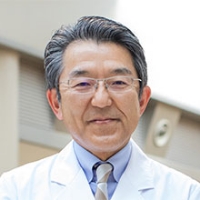
Project Leader / Vice President of Tohoku University (Hospital Management)
Hideo Harigae
Turning cutting-edge AI technology into cutting-edge medical challenges
Regional cities in Japan are facing a variety of medical issues such as uneven distribution of
doctors, aging patients, and declining population. In addition, as the population of Japan declines,
it is said that similar issues will eventually arise in major metropolitan areas in the
not-too-distant future, and these issues are not limited to Japan, but can occur in any country as
the country matures.
In order to confront these major challenges, Tohoku University, Hokkaido University, and Okayama
University have brought together their strengths to establish the Center for Human Resource Development and
Education for Advanced AI Research and Development for Global and Local Solutions to Medical Issues
-Clinical AI-.
The consortium will be supported by nine universities in regional cities and more than 20 partner
companies, including global corporations, as well as the RIKEN AIP Center, which has the highest
level of AI research and development infrastructure in Japan.
In this way, we have formed the largest AI human resource development consortium in Japan, and will
strongly promote the broad training of human resources who can curate the rich medical issues unique
to the region and design AI solutions that will open up the future of medicine.
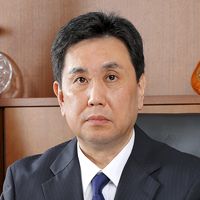
Dean, Hokkaido University School of Medicine
Shigetsugu Hatakeyama
Exploring the frontiers of practical clinical AI
We are very pleased to have been selected by the Ministry of Education, Culture, Sports, Science and
Technology (MEXT) for the "Industry-Academia Collaboration Project for Human Resource Development to
Accelerate AI R&D in the Healthcare Field.
Together with Tohoku University and Okayama University, which are the lead universities, Hokkaido
University will work to develop human resources who can promote AI development based in the northern
land.
With philosophy Hokkaido University, "frontier spirit" and "emphasis on practical learning", we would
like to promote this project by creating a practical educational environment rooted in industry-university
collaborative research with companies, aiming to solve actual problems in the medical field.
We hope to produce a large number of human resources who can actively promote AI research in the
field of healthcare, and to spread AI technology that originates in Japan and becomes a global
standard through the cooperation of the three universities.
I'd like to thank you for your cooperation.
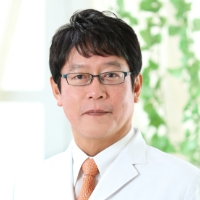
Director, Okayama University Graduate School of Medicine, Dentistry and Pharmaceutical Sciences
Keiji Naruse
Global×Local = “Clinical AI program” runs around Japan
As the population structure is changing on a global scale, local medical care is facing many
challenges that have never been encountered before. Tohoku University, Hokkaido University, and
Okayama University, which share common issues in regional healthcare, are collaborating across the
Japanese archipelago in this project to develop human resources who can face the challenges that
Japan and the rest of the world will inevitably face in the future and use the latest AI technology
to solve them.
In addition to the Faculty of Medicine and the Graduate School of Science, Okayama University has
established “CYPHER”, a cross-departmental AI and data science research organization centered on the
Faculty of Engineering; OASIS (Okayama AI and Secure IoT Co-Creation Consortium), which consists of
companies and university researchers who aim to conduct joint research in the fields of AI, IoT, and
security-related technologies; and the Humanities and Social Sciences Research Institute. In
addition, researchers from the Faculty of Humanities, companies engaged in joint research on medical
AI, and cooperating universities such as Tokushima University, Kagawa University, Yamaguchi University,
Tottori University and Kawasaki Medical University are participating in this project. The educational
program includes a four-year doctoral course in medical AI applications and a one-year intensive course
in medical AI. In addition, the university has established a consortium of universities, faculties,
industry and academia to develop human resources who can implement AI in the medical field and solve
medical problems.
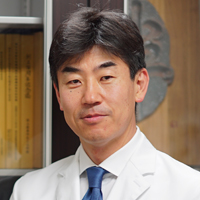
Dean of Medical School, Okayama University / General Manager of Medical AI Human Resource Development Project Okayama University
Shinichi Toyooka
Fostering AI and data science human resources to lead the next generation of medicine
With the advent of computer technology, artificial intelligence is now being used everywhere in our
lives. By utilizing AI in medical care, not only the development of next-generation medical care such as new diagnostic technology, but also many health care fields such as the aging society and medical depopulated areas due to uneven distribution of medical staff, which are currently issues in Japan. There is a possibility that the problem can be solved. Tohoku University, Hokkaido University, and Okayama University have joined forces to promote the Medical AI Project, which aims to contribute to healthcare by fostering human resources who can design AI-based solutions to healthcare issues and create new value.
To carry out this project, Okayama University has established OASIS (Okayama AI and Secure IoT
Co-creation Consortium), which consists of not only medical faculties and graduate schools, but also
CYPHER, a cross-departmental AI and data science research organization centered on the Faculty of
Engineering, and companies and university researchers who aim to conduct joint research in the
fields of AI, IoT, and security-related technologies. OASIS (Okayama AI and Secure IoT Co-creation
Consortium), researchers in the humanities, companies engaged in joint research on medical AI, and
partner universities including Tokushima University, Kagawa University, Yamaguchi University,
Tottori University and Kawasaki Medical University.
By combining the strengths of the participants, we aim to produce human resources who will lead the
next generation of AI-based medical care, thereby contributing to the development of healthcare in
Japan and around the world.
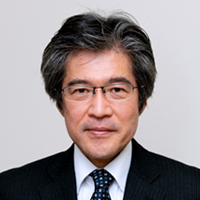
Executive Director for Promotion of Digital Transformation, Vice President / Vise Director of Cyber-physical engineering informatics research core (CYPHER), Okayama University
Masanobu Abe
The duality of Medicine and AI
AI (Artificial Intelligence) has been attracting attention, not only in games such as Go, but also in image recognition, machine translation, etc. AI building software is becoming popular, and AI applications are being boldly pursued in various fields.The "Clinical AI" program is a leading-edge educational program that fosters human resources who can apply AI to the medical field. The most advanced technologies are advancing day by day, and since AI has a wide range of applications, it is important to keep your antennas high and collect the latest technical information extensively. In this respect, the fact that Clinical AI is a consortium of three universities (Tohoku University, Hokkaido University, and Okayama University) is an advantage.
In addition, just because AI building software is widespread, it does not mean that it should be applied in the dark. Insight and consideration based on engineering theory are essential. I would like to train people who specialize in medicine, have a good sense of engineering, and can engage in deep discussions and coordination with AI engineers.
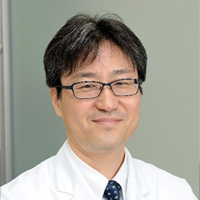
Director of Okayama University Hospital
Yoshinobu Maeda
Contributing to the development of Global and Local “GLOCAL” healthcare
Regional medical issues such as vast medical areas, limited medical resources, and aging populations are global issues.
Japan is a leading country in the field of Global and Local (GLOCAL) healthcare issues, and local areas in particular can be said to be a "showcase" where issues are concentrated. Tohoku University, Hokkaido University, and Okayama University aim to contribute to the development of GLOCAL healthcare by fostering human resources who can create new values by utilizing the large amount of data in the healthcare field.
Okayama University will form a consortium that includes researchers from across the faculty, as well as companies and universities in the Chugoku and Shikoku regions, to strongly promote the development of AI human resources.

